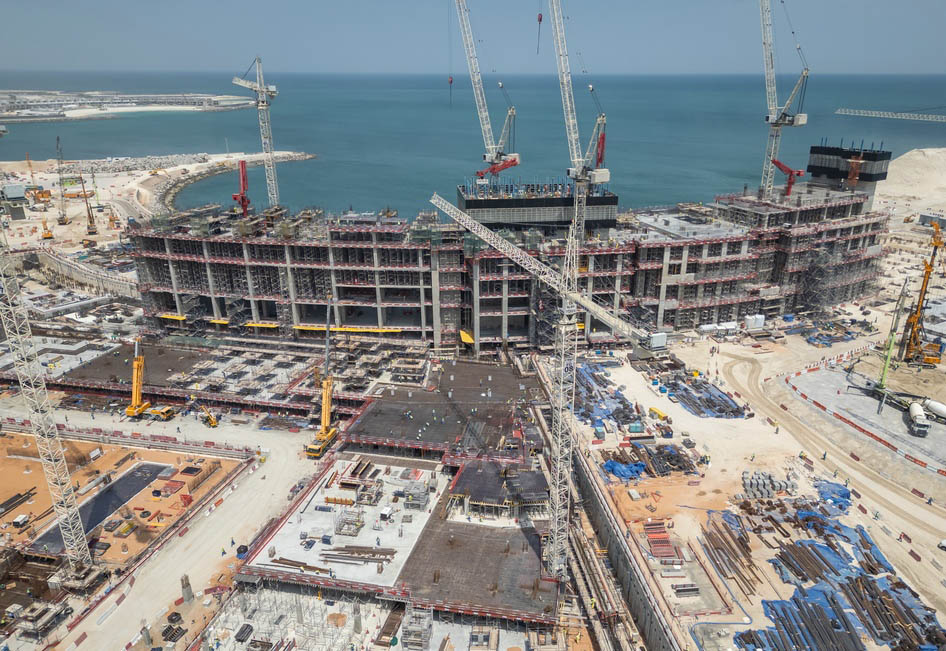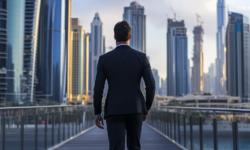
Preserving urban order and safety: How Ras Al Khaimah is tightening controls to prevent unlicensed building and protect community well-being.
A No-Nonsense Stand on Unlicensed Construction
In a robust effort to preserve public safety, environmental standards, and urban planning integrity, Ras Al Khaimah authorities have launched a sweeping crackdown on illegal construction activities across the emirate. The initiative, led by the Department of Municipalities and Planning (DMP) and supported by law enforcement and environmental agencies, marks a clear stand against unauthorized development and zoning violations.
Over the past several months, dozens of violations have been recorded, ranging from unapproved residential additions and commercial expansions to construction on protected or restricted lands. These activities, officials warn, pose not only legal and regulatory challenges but also significant risks to public safety, infrastructure sustainability, and the environment.
Why It Matters: Upholding Urban Integrity in a Growing Emirate
Ras Al Khaimah has seen a steady surge in population, investment, and tourism-driven construction. While this growth is welcome, it also brings new pressures on land use, utilities, roadways, and environmental resources. The emirate’s master urban development plan emphasizes sustainable growth, smart city infrastructure, and lawful land development practices.
Illegal constructions, however, undermine these goals by:
- Disrupting carefully zoned urban layouts
- Placing uncalculated stress on infrastructure and services
- Raising serious safety concerns for residents and workers
- Leading to unregulated use of energy and water resources
This crackdown aims to restore discipline and send a message that unregulated building will not be tolerated in a modern, forward-looking emirate.
Scope of the Crackdown
The campaign, initiated in early 2025, includes a wide range of enforcement measures:
🔹 Inspection Blitzes
- Field inspection teams have been deployed across both urban and rural zones
- High-risk areas include industrial zones, agricultural lands, coastal zones, and unlicensed labor camps
- Use of drones and satellite imagery has been introduced to detect unauthorized structures quickly
🔹 Legal Action & Demolitions
- Authorities have already issued over 300 violation notices
- More than 90 illegal structures have been demolished since the start of the campaign
- Fines of up to AED 50,000 are being imposed for non-compliance, along with mandatory restitution costs
🔹 Public Reporting Channels
- Residents can now report suspicious or illegal building work through a dedicated mobile app, hotline, or WhatsApp channel
- A reward system is under review to encourage whistleblowing and community vigilance
Not Just a Legal Issue—A Safety Concern
Many illegal buildings lack:
- Proper foundation assessments
- Compliant electrical and plumbing systems
- Fire safety approvals
- Structurally sound designs
This raises alarm bells in a region prone to high temperatures, seasonal flooding, and rising infrastructure demands.
Eng. Saeed Al Nuaimi, Director of Urban Planning at RAK DMP, emphasized:
“We are not just enforcing laws—we are protecting lives. An unlicensed extension can turn into a structural hazard. These actions are a matter of public safety.”
Recent Cases Making Headlines
Several notable violations have made news recently:
- A large farm villa extension in Khatt built without permits, lacking sewage and electricity approvals
- An illegal multi-story warehouse in Al Jazeera Al Hamra Industrial Zone posing fire and loading risks
- Temporary labor accommodations constructed without compliance to health and sanitation codes
In all cases, structures were demolished and property owners penalized.
Licensed Contractors and Landowners Warned
Authorities have issued new circulars warning licensed contractors, engineers, and landowners about the penalties of participating in or enabling unauthorized construction. Violators may face:
- Blacklisting from future government projects
- Suspension or revocation of licenses
- Potential civil or criminal liability
To help prevent unintentional violations, the RAK Municipality is also ramping up educational seminars, webinars, and informational campaigns targeting small developers, landlords, and builders.
Balancing Growth with Responsibility
Ras Al Khaimah’s urban planning department has emphasized that this crackdown is not anti-growth—but pro-sustainable growth.
The emirate continues to offer:
- Streamlined building permit procedures
- Digital application portals for approvals
- Fast-track zones for tourism and industrial development
But, as officials stress, “speed and flexibility should never come at the cost of safety and legality.”
Mariam Al Qasimi, a senior planning officer, explained:
“We support development, but it must happen within the framework of law and strategic vision. This is how we maintain Ras Al Khaimah’s unique identity and livability.”
The Environmental Angle
Many illegal constructions take place in protected coastal or agricultural areas, leading to:
- Deforestation or habitat loss
- Soil and water pollution
- Encroachment on public lands
The RAK Environment Protection and Development Authority (EPDA) has joined the crackdown by mapping sensitive zones and flagging any construction that interferes with green belts, marine ecosystems, or agricultural reserves.
New laws being proposed may require mandatory Environmental Impact Assessments (EIAs) for all private construction exceeding certain thresholds, even for non-commercial developments.
What Residents Need to Know
If you’re a property owner or developer in Ras Al Khaimah, here’s what to keep in mind:
- Always apply for building permits before initiating any structure—even extensions or renovations
- Ensure your contractor is licensed and approved by the municipality
- Avoid building on unclassified or shared lands
- If unsure, consult the RAK Building Code Guidelines or contact the RAK Municipality
Authorities have made it clear that ignorance of the law is not an acceptable excuse, and retroactive approval of illegal construction is no longer possible under current regulations.
Future Vision: Legal, Safe, and Sustainable Development
Ras Al Khaimah’s development goals are ambitious, but well-structured:
- Position the emirate as a green tourism capital
- Develop sustainable housing and eco-resorts
- Expand transportation and utility infrastructure in a controlled, strategic manner
Illegal construction poses a threat to all these ambitions. The current crackdown is only the beginning of long-term enforcement, smart monitoring, and zero-tolerance policies for lawbreakers.
Final Thoughts: Order, Safety, and Accountability
The crackdown on illegal construction is a bold yet necessary move that reinforces Ras Al Khaimah’s position as a responsible, progressive emirate. In a region where rapid growth is inevitable, setting the right standards early is crucial.
Whether you’re a developer, landowner, or resident, the message is clear:
“Build the future—but build it right.”





